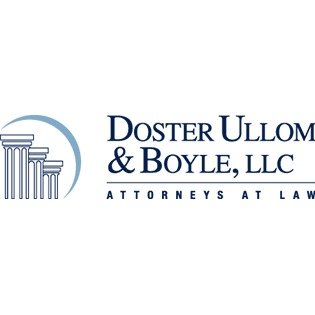Best Project Finance Lawyers in Missouri
Share your needs with us, get contacted by law firms.
Free. Takes 2 min.
Or refine your search by selecting a city:
List of the best lawyers in Missouri, United States
About Project Finance Law in Missouri, United States
Project finance is a specialized branch of law focused on the legal structuring, negotiation, and financing of large-scale infrastructure or industrial projects. In Missouri, project finance is commonly utilized for developments such as energy facilities, transportation infrastructure, public-private partnerships, and real estate projects. This legal area deals with non-recourse or limited recourse financial structures, where the project's assets, rights, and interests are held as collateral, rather than the credit of the sponsors. Lawyers experienced in Missouri project finance ensure compliance with local regulations and help structure deals in a way that spreads risks and secures investments.
Why You May Need a Lawyer
Project finance deals are complex, involving numerous parties and significant financial investments. You may need a lawyer if you are:
- Seeking funding for a large-scale construction, infrastructure, or energy project in Missouri
- Entering into public-private partnership agreements with government entities
- Negotiating terms of syndicated loans or bond financing for your project
- Acquiring or developing land for a project involving extensive regulatory oversight
- Dealing with environmental review, permitting, or compliance issues
- Looking to create limited liability structures and allocate risk among stakeholders
- Involved in complex contract negotiations or dispute resolution regarding project development
- Wishing to ensure that security interests and collateral arrangements are legally sound and enforceable in Missouri courts
Local Laws Overview
Missouri has a legal environment supportive of project finance, with state laws governing lending, security interests, and public contracting. Some key legal aspects to be aware of include:
- Missouri Uniform Commercial Code (UCC): Provides standards for secured transactions, including collateralization of project assets, and is vital in structuring project financing arrangements.
- Municipal and State Contracts: Projects that involve public entities or public funding must comply with Missouri statutes regulating procurement, public bidding, and transparency.
- Environmental Permitting: Infrastructure and energy projects in Missouri often require compliance with both Missouri Department of Natural Resources regulations and federal environmental laws.
- Real Estate and Land Use: Missouri's statutes and local ordinances govern zoning, land acquisition, easements, and permitting required for site development in project finance.
- Public-Private Partnerships (PPP): There are specific state laws guiding PPPs for infrastructure projects, including permissible structures and protections for both governmental entities and private investors.
- Tax Incentives and Credits: Missouri provides various programs that can enhance project viability, such as tax credits for renewable energy or historic redevelopment.
Frequently Asked Questions
What is project finance and how is it different from traditional financing?
Project finance focuses on funding large-scale projects where repayment is primarily from the project's cash flow rather than the general assets or credit of the sponsors. The project itself serves as the primary collateral, making it different from traditional loans that rely on the borrower's balance sheet.
What types of projects typically use project finance in Missouri?
Common examples include renewable energy installations, wastewater treatment plants, toll roads, hospitals, large manufacturing facilities, and public infrastructure developments.
What role does the Missouri Uniform Commercial Code (UCC) play in project finance?
The UCC sets out the rules for secured transactions, which means it governs how collateral is created, perfected, and enforced. This is fundamental in project finance, where lenders rely heavily on project assets for security.
Can public funds be combined with private investments in Missouri projects?
Yes, Missouri law allows for public-private partnerships (PPPs), which combine state or municipal funding and oversight with private capital and expertise to finance, build, and operate certain infrastructure projects.
Do all projects require environmental permits in Missouri?
Most projects that might impact the environment require permits from the Missouri Department of Natural Resources and, often, the federal Environmental Protection Agency. The type and complexity of permitting depend on the project’s scope and location.
How does risk allocation work in project finance transactions?
Legal counsel helps define which parties assume various risks, such as construction delays, cost overruns, and operational issues, typically through detailed contracts and insurance arrangements.
Can foreign investors participate in Missouri project finance deals?
Yes, foreign entities often invest or partner in Missouri projects, but may face additional regulatory reviews or reporting requirements under state and federal law.
What kinds of collateral can be pledged in Missouri project finance?
Collateral often includes project assets such as land, buildings, equipment, contractual rights, permits, and sometimes revenue streams from the operation of the project.
What are the steps for obtaining finance for a large project in Missouri?
Typical steps involve securing project approval, conducting feasibility and risk analysis, negotiating term sheets, creating a project company, securing permits, entering into contracts with contractors and operators, and finalizing the financing agreements.
How do I resolve disputes that arise during a project’s development or operation?
Dispute resolution is usually outlined in project contracts and may include negotiation, mediation, arbitration, or litigation in Missouri courts, depending on the parties’ agreements.
Additional Resources
Those seeking further information or in need of assistance may consult the following resources:
- Missouri Department of Economic Development - For information on state incentives and permits
- Missouri Department of Natural Resources - For environmental compliance and permitting
- Missouri Secretary of State - For public records, business entity registration, and UCC filings
- Missouri Bar Association - For lawyer referrals and legal guides
- Local municipal governments - For zoning and permit requirements relevant to specific projects
- U.S. Small Business Administration - For guidance on federal loan and grant programs that may apply to Missouri projects
Next Steps
If you are considering a project that may require complex financing, it is important to:
- Outline your project’s scope, including timelines and estimated costs
- Identify any public or private stakeholders you plan to involve
- Consult with a Missouri-based legal professional experienced in project finance to review your options and potential risks
- Gather necessary documentation, such as feasibility studies, site information, contracts, and permits
- Prepare for due diligence by lenders or investors, including addressing any legal or regulatory hurdles early in the process
- Follow up on all legal advice, stay informed about regulatory changes, and remain proactive in contract negotiations and compliance matters
Taking these steps, with appropriate legal guidance, can help avoid costly delays and set your Missouri project on a path to successful completion.
Lawzana helps you find the best lawyers and law firms in Missouri through a curated and pre-screened list of qualified legal professionals. Our platform offers rankings and detailed profiles of attorneys and law firms, allowing you to compare based on practice areas, including Project Finance, experience, and client feedback.
Each profile includes a description of the firm's areas of practice, client reviews, team members and partners, year of establishment, spoken languages, office locations, contact information, social media presence, and any published articles or resources. Most firms on our platform speak English and are experienced in both local and international legal matters.
Get a quote from top-rated law firms in Missouri, United States — quickly, securely, and without unnecessary hassle.
Disclaimer:
The information provided on this page is for general informational purposes only and does not constitute legal advice. While we strive to ensure the accuracy and relevance of the content, legal information may change over time, and interpretations of the law can vary. You should always consult with a qualified legal professional for advice specific to your situation.
We disclaim all liability for actions taken or not taken based on the content of this page. If you believe any information is incorrect or outdated, please contact us, and we will review and update it where appropriate.
Browse project finance law firms by city in Missouri
Refine your search by selecting a city.
















